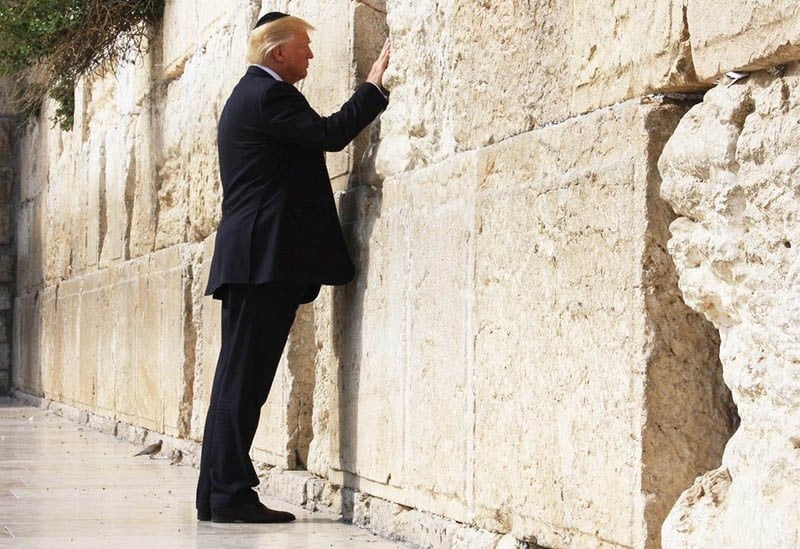
Sadly, the focus of the Islamic Military Alliance is not to emancipate territories occupied by Israel but counter the perceived threat from Iran

Fifty years after the 1967 Arab-Israeli war, the focus of many Arab/Muslim countries is not the emancipation of territories occupied by Israel but countering what they perceive as the growing Iranian threat.
The Islamic Military Alliance (IMA) formed in December 2015 under the patronage of Saudi Arabia, now led by the former Chief of Army Staff of Pakistan, General Raheel Sharif, comprises 41 countries with the aim to combat terrorism. Iran, Iraq and Syria, the three key Arab countries, are not members of the alliance because they consider the IMA an anti-Shia drive led by Riyadh.
The dangers of IMA can be gauged from the fact that it is not Saudi Arabia and the conservative Gulf monarchs who are the main driving force against Iran. The US, following the visit of President Donald Trump to Saudi Arabia to attend the first US-Arab Islamic Summit held in Riyadh on May 21, is also a principal backer of what is perceived as an anti-Iran alliance.
At the summit, President Trump and King Salman termed Iran a major security threat, a promoter of terrorism. They equated Iran with ISIS and Jaish. Trump’s $110 billion arms deal with Saudi Arabia too is directed against Iran’s expansionist drive in the Arabian Peninsula.
Analysts have two concerns: why the focus of alliance is not to emancipate the Arab occupied areas, particularly the second holiest place of Muslims, Jerusalem, from the tutelage of Israel, and will the alliance not further polarise the already fragmented Muslim world?
Read also: NATOising the Middle East
Israel’s policy to inundate Occupied West Bank with Jewish settlements and to sustain its siege of Gaza is a major human catastrophe because millions of Palestinians since the last 50 years are facing brutal Israeli repression. East Jerusalem, where Al Aqsa Mosque is located, is a no-go area for young Muslims.
Further, Israel’s Operation Protective Edge, launched in the summer of 2014 against Hamas-supported terrorists, killed hundreds of Palestinians and destroyed their homes. Instead of implementing the UN Security Council Resolution 242 passed on November 22, 1967 which calls for the withdrawal of Israel from the Arab occupied areas, Israel annexed Golan Heights and East Jerusalem. It shifted its capital from Tel Aviv to Jerusalem in violation of the UN Security Council Resolution 242. Except the Sinai desert, which Israel returned to Egypt following the Egyptian-Israeli peace treaty of 1979, Israel has maintained its control over other Arab territories.
On the Palestinian question, Israel refused to accept the two-state solution, and is adamant to retain its occupation over the Golan Heights, West Bank and East Jerusalem. Israel’s unilateral withdrawal from Gaza in August 2005 did not result in any positive change for the Palestinians because it blocked the coast of Gaza, disconnecting 1.8 million Palestinians with the rest of the world.
Fifty years after the 1967 Arab-Israeli war, hundreds of thousands of Palestinians are still languishing in refugee camps in Lebanon. Despite the Oslo Accord, signed between PLO Chairman Yasser Arafat and Israeli Prime Minister Yitzhak Rabin in the lawns of White House in September 1993 for an independent Palestinian State, Palestinians are still stateless.
Israel’s age-old aggression in the Arab territories remains unchallenged by its Arab neighbours, including Saudi Arabia. Instead, a significant shift has taken place in the Saudi-led Arab world which considers Iran, not Israel, as a major threat to Arabs and Muslims because of Tehran’s significant influence in Iraq, Syria and Lebanon and its support to Shia groups in Bahrain and Yemen.
Saudi-led Islamic Military Alliance is the latest attempt made by Riyadh in connivance with the US to deter Iran, and forge a policy of containment.
The alliance poses multiple dangers. Two among them are serious. First, if the purpose of the IMA is to fight terrorism the Arab and Muslim states are facing, how will it deal with this menace. The US support to the IMA is certainly directed against Iran, which it considers as a major supporter of the Syrian regime of Bashar al-Assad, Hezbollah in Lebanon and Hamas in Gaza. There is not a word about liberating the Arab occupied areas from Israel by the IMA. The focus of such an alliance should have been to free Al Aqsa Mosque and other Arab territories held by Israel since June 1967.
Consequently, resentment against the pro-American Saudi Arabia and other conservative Gulf regimes is growing as the purpose of the IMA is not to deal with the Palestinian issue but to provide space to Israel to deepen its illegal occupation of Arab occupied territories.
Second, the absence of Iran, Iraq and Syria from the IMA, and their resolve to resist the Saudi-led efforts to encircle the non-Sunni states by establishing a Sunni-led alliance will deepen the sectarian discord in the Muslim world. Iran has not occupied any Arab territory but is a major supporter of the Palestinian cause. Iran’s resolve to fight the Israeli occupation of East Jerusalem and the Al Aqsa Mosque is beyond any shadow of doubt.
The surge of anti-American sentiment following the visit of Donald Trump to Saudi Arabia and Israel is predictable, as it is not Iran but the United States which is held responsible for the genocide of Palestinians. Saudi Arabia and the other members of the Gulf Cooperation Council (GCC) have never provided any practical support to Palestinians in their struggle for emancipation.
Paradoxically, Pakistan is a key member of the IMA but at the same time it wants to desist from any move against Iran. Political wisdom demands that Pakistan must maintain a low profile in the IMA otherwise the flames of sectarian violence will again destabilise its state and society.